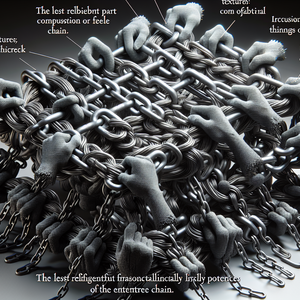Beyond the Book: Kiyosaki’s Diverse Income Streams

At the heart of Kiyosaki's philosophy is the idea of financial literacy, which he believes is crucial for achieving financial independence. He emphasizes the importance of understanding how money works, not just in terms of earning it but also in terms of managing, investing, and multiplying it. This foundational principle has guided Kiyosaki as he expanded his income sources beyond writing, allowing him to cultivate a diverse portfolio that serves as a model for others. Kiyosaki often emphasizes the difference between assets and liabilities, urging individuals to focus on acquiring assets that generate income rather than liabilities that drain resources. This mindset has informed his various income-generating strategies and has become a cornerstone of his teachings.
Real Estate Ventures
One of the most prominent income streams in Kiyosaki's portfolio is real estate. He has consistently advocated for real estate investment as a pathway to financial freedom. Kiyosaki’s strategy includes acquiring rental properties, flipping houses, and leveraging real estate for passive income. For instance, in his seminars, he often shares success stories from individuals who have followed his advice and built substantial wealth through real estate. Kiyosaki’s approach emphasizes not just buying properties but understanding market dynamics and using creative financing strategies. He often notes that a thorough understanding of the real estate market can lead to significant financial rewards, as evidenced by numerous testimonials from his followers who have successfully navigated property investments.
Seminars and Educational Programs
Another significant income stream for Kiyosaki comes from his seminars and workshops. Through his company, Rich Dad Education, he offers a variety of programs designed to teach financial literacy, investing strategies, and entrepreneurship. These events often attract thousands of attendees eager to learn from Kiyosaki and his team. By providing a platform for individuals to gain knowledge and network with like-minded peers, Kiyosaki creates a community that values financial education and empowerment. The revenue generated from these seminars contributes substantially to his overall income while further solidifying his brand in the financial education space. His seminars are often described as engaging and motivational, providing practical insights that attendees can apply to their own financial journeys.
Digital Products and Online Courses
In the digital age, Kiyosaki has successfully adapted his business model to include online courses and digital products. This transition allows him to reach a global audience and provide accessible financial education to individuals regardless of their geographical location. His online offerings include webinars, e-books, and subscription-based content, all tailored to help people understand wealth-building strategies. This shift not only diversifies his income but also capitalizes on the growing trend of online learning, making financial education more accessible than ever. By leveraging technology, Kiyosaki has been able to maintain relevance in an increasingly digital world, catering to a new generation of learners who prefer online formats.
Investments in Businesses and Partnerships
Kiyosaki has also engaged in various business ventures and partnerships that contribute to his income. He has invested in companies that align with his financial philosophy, further diversifying his portfolio. For example, he has collaborated with other entrepreneurs to create products and services that promote financial literacy and empowerment. By leveraging his brand and expertise, Kiyosaki has been able to establish a business ecosystem that generates revenue while advocating for financial education. His partnerships often focus on innovative approaches to investing and entrepreneurship, providing additional resources and tools for those looking to build their wealth.
Robert Kiyosaki's journey illustrates the power of diversifying income streams and embracing a multifaceted approach to wealth. From real estate investments to seminars and digital products, Kiyosaki has built a financial empire that extends far beyond his initial success with "Rich Dad Poor Dad." His story serves as an inspiration for individuals looking to achieve financial independence and emphasizes the importance of education, resilience, and strategic thinking in the pursuit of wealth. By following Kiyosaki's example, aspiring entrepreneurs can learn valuable lessons about the importance of diversifying their income sources and continuously investing in their financial education. Ultimately, Kiyosaki’s diverse income streams not only reflect his personal journey but also provide a roadmap for others to follow on their path to financial success.
Real Estate Investment Analyst
Real estate investment firms, private equity firms, commercial banks
Core Responsibilities
Conduct market research to identify profitable real estate investment opportunities.
Analyze property values and trends, preparing comprehensive investment reports.
Collaborate with brokers and investors to assess potential deals and risks.
Required Skills
Strong analytical skills with proficiency in financial modeling and valuation techniques.
Experience with real estate market analysis tools and software (e.g., CoStar, ARGUS).
Excellent communication skills for presenting findings to stakeholders.
Financial Educator/Trainer
Educational institutions, financial organizations, nonprofit organizations focused on financial literacy
Core Responsibilities
Develop and deliver financial literacy programs and workshops for diverse audiences.
Create educational materials that simplify complex financial concepts.
Assess participants' learning needs and adapt training methods accordingly.
Required Skills
Experience in teaching or training, particularly in finance or economics.
Strong public speaking and interpersonal skills to engage with audiences effectively.
Certification in financial education or related fields (e.g., Certified Financial Educator).
Digital Course Developer (Finance)
Online education platforms, financial education startups, universities offering online courses
Core Responsibilities
Design and create online courses focused on financial literacy, investing, and entrepreneurship.
Utilize multimedia tools to enhance learner engagement and retention.
Monitor and evaluate course effectiveness, making data-driven improvements.
Required Skills
Proficiency in e-learning software and Learning Management Systems (LMS).
Strong curriculum design skills with an understanding of adult learning principles.
Background in finance, education, or instructional design.
Wealth Management Advisor
Financial advisory firms, banks, insurance companies
Core Responsibilities
Provide personalized financial advice to clients, focusing on investment strategies and wealth growth.
Conduct financial assessments to develop tailored investment plans.
Monitor clients' portfolios and adjust strategies based on market conditions and life changes.
Required Skills
Strong knowledge of investment products, market trends, and financial planning.
Excellent relationship-building skills and a customer-centric approach.
Relevant certifications (e.g., Certified Financial Planner (CFP), Chartered Financial Analyst (CFA)).
Business Development Manager (Financial Services)
Financial institutions, investment firms, fintech companies
Core Responsibilities
Identify and pursue new business opportunities in the financial services sector.
Build and maintain relationships with potential clients and partners.
Develop strategic plans to enhance market presence and drive revenue growth.
Required Skills
Strong sales and negotiation skills with a proven track record of meeting targets.
Understanding of financial products and services, along with market dynamics.
Excellent networking and communication skills.


